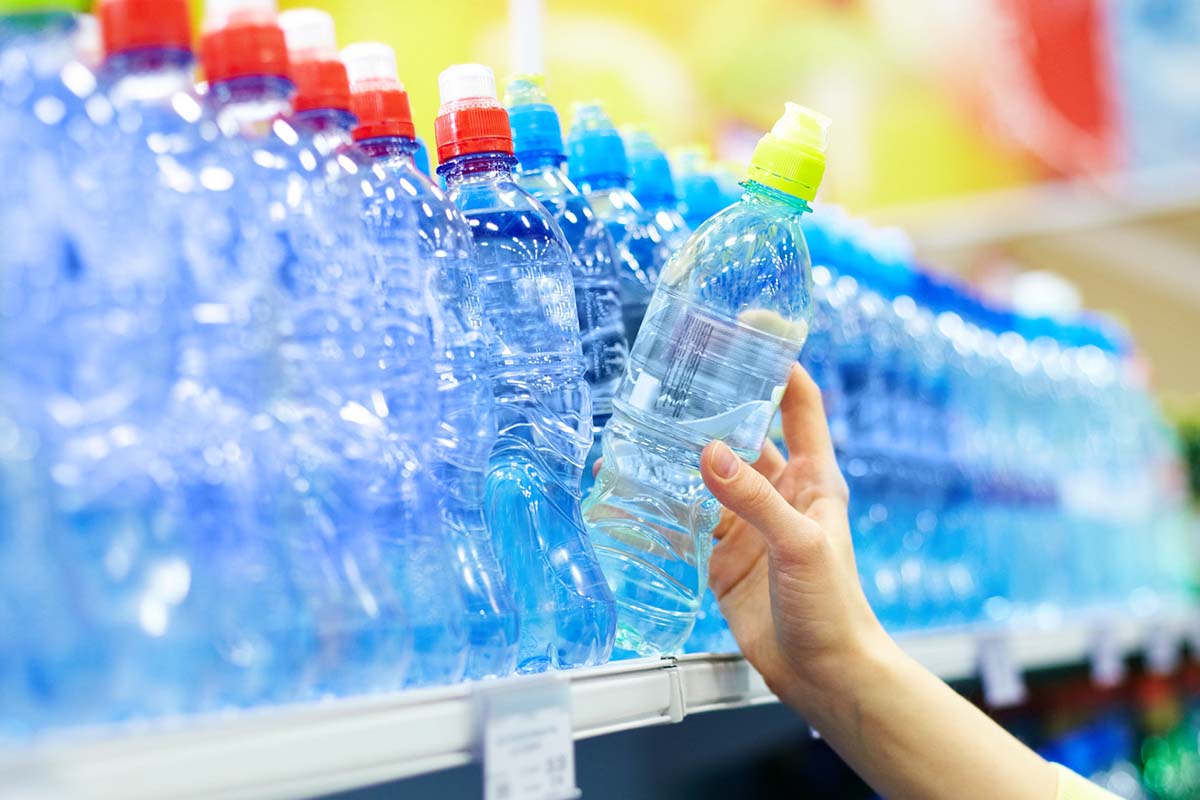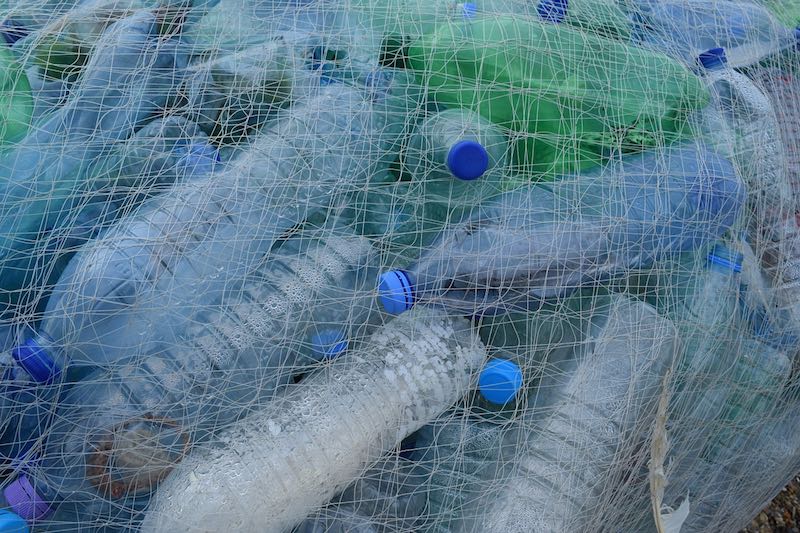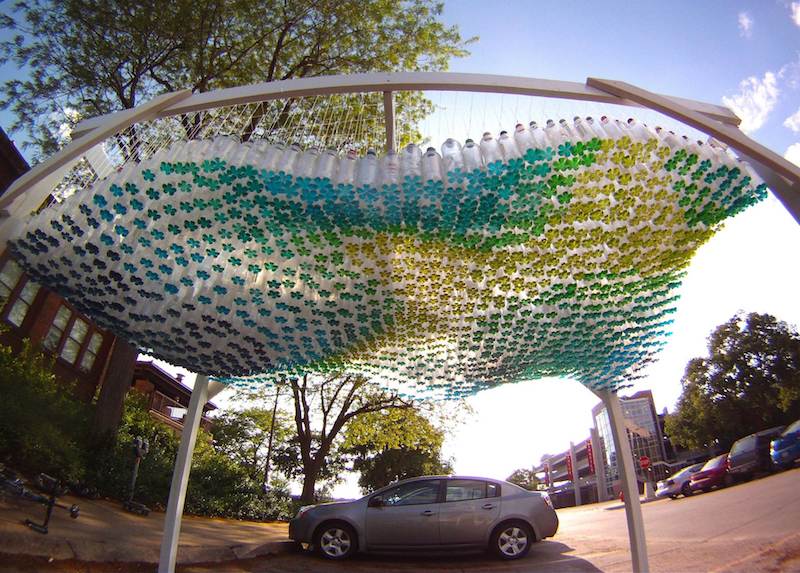 Buying bottles has a great environmental impact . Many are the resources used for the production of the packaging, labeling and transport of the bottles, which has a great environmental impact. Although much of the waste generated can be recycled, the truth is that a high percentage (millions of tons) of waste ends up being abandoned in nature. The bottled water business moves billions a year.
Buying bottles has a great environmental impact . Many are the resources used for the production of the packaging, labeling and transport of the bottles, which has a great environmental impact. Although much of the waste generated can be recycled, the truth is that a high percentage (millions of tons) of waste ends up being abandoned in nature. The bottled water business moves billions a year.
Did you know that Mexico is the country that consumes the most bottled water in the world? The lack of reliability in water operating systems, the increased access and affordability of bottled water, and the lack of a regulatory framework to control this growing sector, are the reasons that lead Mexicans to buy bottled water. large quantities. It is estimated that 21 million plastic bottles are thrown away every day in Mexico alone . You can get an idea of the environmental disaster that this consumption generates every day.
But there are also companies that are becoming aware of the huge problem creating plastic bottles, such as Selfridges , the UK’s second largest department store chain, which recently announced that it will stop selling water in plastic bottles in the UK. restaurants and their shops. The measure aims to join the fight to prevent ocean plastic waste pollution and encourage chain customers to reduce their use. In 2014 Selfridges sold 400,000 plastic bottles.
According to one of the largest consumer and user organizations in Spain, OCU, the consumption of tap water is a cheaper, environmentally friendly and healthier option, which is why it has suggested that public administrations require it to be served preferably in restaurants and bar, as long as the taste of the water is adequate. Plastic is a material that our planet cannot digest.
 Reasons not to drink bottled water.
Reasons not to drink bottled water.
Here are 7 reasons, although I’m sure you can think of many more, not to drink bottled water:
- Bottled water generates a large amount of waste .
Plastic is the most widely used material for water bottling around the world. You should know that only one in four plastic bottles is recycled.
Plastic bottles in the fishing net
The rest of the plastic that is not recycled ends up in the seas, oceans, rivers and lakes, causing irreparable damage to many species of animals. I don’t know if you know Plastisphere, a marine ecosystem characterized by the presence of plastic waste in vast ocean areas. A source of pollution with terrible environmental destruction and almost impossible to recover.
A significant reduction in plastic packaging waste in this sector would reduce the pollutant and greenhouse gas emissions associated with the distribution and transport of bottles.
2. Its price is excessive.
The price of bottled water can be more than 1,000 times the price of tap water. Mexico is the country that consumes the most bottled water in the world, consuming 234 liters per person per year.
A liter of bottled water costs us up to 250 times more than a liter of tap water, i.e. 5 liters of bottled water we pay for it as 1,000 liters of tap water.
3. It is not healthier than tap water.
Sometimes bottled water is no healthier than tap water. Some brands don’t sell mineral water, they just sell filtered tap water, which you can make at home too and much cheaper.
It is estimated that 40% of all bottled water in the world is taken from municipal water sources, come on, which is tap water.
As a consumer you cannot be sure that bottled water is the cleanest and safest to drink. I’ve even read articles listing a number of diseases that can cause this hair-raising habit.
4. Bottling of water consumes a large amount of natural resources .
Making a bottle of water consumes three times the amount of water than the same water it will contain. Approximately 17 million barrels of oil are used annually for the production of bottles. Enough fuel for one million cars a year.
A liter of bottled water requires 100 times more electricity than a liter of tap water.
5. It diminishes the importance of public supply services.
People who consume bottled water usually do so because they don’t like the taste of local tap water or because they think it’s healthier than tap water, or because they have doubts about its potability. The ideal would be to support and ask our leaders to improve tap water.
6. Drinking water is privatized.
Drinking water is an increasingly scarce resource. Multinationals have focused on “blue gold”. More and more public sources of drinking water pass into private hands.
7. Its transportation consumes millions of liters of fuel.
An analysis showed that an ordinary Slovenian citizen (whose average bottled water consumption is 56 l / person in a year), who stops drinking bottled water and starts drinking tap water, would reduce his impact from drinking water of at least 36.81 kg of CO2 or 95% in four years. In addition, the GHG reduction potential was also calculated. What surprised the results was the discovery that much of the emissions come from transportation between different suppliers.
After all you have read, if you decide to try to give up plastic consumption, I recommend that you follow the advice of Merren Tait, a girl who has completely given up on plastic consumption.
 How a plastic bottle is made.
How a plastic bottle is made.
Most plastics originate in oil. Petroleum Bottles have a fairly long process as the crude is extracted until it ends up being a plastic bottle on a store shelf.
The manufacture of plastic follows a different process depending on the product to be made. In the case of water bottles, polyethylene terephthalate (PET), a product obtained from hydrocarbons, is used. Once the PET resin is obtained, the industries obtain the final container by stretch-blow molding. In the whole process, the one that involves the greatest environmental loads is that of the purification of terephthalic acid, since it emits greenhouse gases.
Reuse of Bottles.
Plastic bottles are so abundant in our current society that ideas for reusing them of all kinds have arisen. From bird feeders to plastic brooms, a homemade solar heater for the bravest, or a Christmas tree, a homemade watering can or a surfboard!
There are some projects that have caught our attention for their originality, a spectacular multicolored roof, a hydroponic garden for the windows, turning them into rope or using them as raw material in a 3D printer. We share a video with hundreds of ideas:
Alternatives to bottled water.
Replace the PET bottle with a reusable bottle. Invest in a reusable bottle that suits your needs. Put a water purifier or filter tap water if you don’t like the taste. It is interesting to know which types of plastic we are most likely to find. By purchasing bottled water we not only waste water and money unnecessarily, sometimes on water of much lower standards than tap water, but we also pollute the planet with millions of tons of petroleum-based plastic bottles that take more than 1000 years to completely degrade. Here is a very interesting video:









